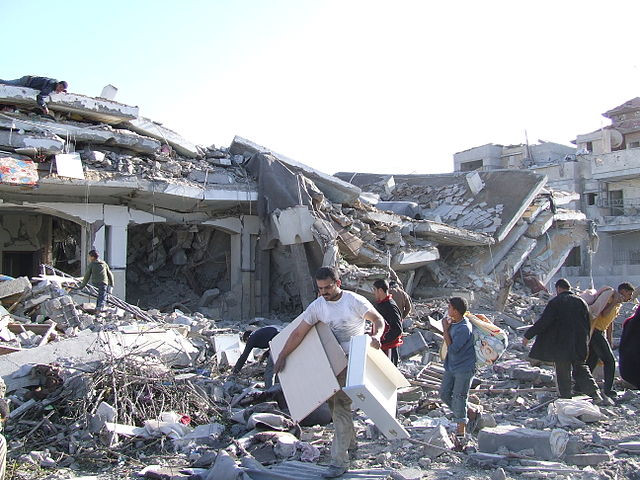As the humanitarian crisis in Gaza intensifies, the World Health Organization (WHO) and Israeli officials have coordinated a critical polio vaccination campaign, marking a significant effort to combat a disease that has resurfaced in the enclave after a 25-year absence. The initiative comes amid ongoing conflict and logistical challenges that threaten the successful implementation of the campaign.
On Friday, the WHO announced that Israel had agreed to implement "humanitarian pauses" in the fighting to facilitate the vaccination of approximately 640,000 children under the age of 10. Rik Peeperkorn, WHO's senior official for the Palestinian territories, outlined the campaign's phased approach, starting with a three-day pause in central Gaza from September 1 to 4. Subsequent pauses will occur in the southern Khan Younis region from September 5 to 8, and in northern Gaza and Gaza City from September 9 to 12.
The campaign aims to deliver two doses of the oral polio vaccine to every child in the targeted age group. The WHO has stressed the importance of achieving a minimum vaccination coverage of 90% to prevent further outbreaks and international spread. To support this, 1.26 million vaccine doses and 500 vaccine carriers have been delivered to Gaza, with an additional 400,000 doses expected soon.
Despite these preparations, the campaign faces significant obstacles. The ongoing conflict has led to the destruction of many healthcare facilities, leaving only nine operational centers capable of maintaining the required cold chain for vaccine storage. Dr. Majed Jaber, working in Gaza's Al-Mawasi district, highlighted the dire situation, stating, "What are we supposed to do? It feels really helpless." The Palestinian Ministry of Health has announced plans to redistribute cold chain equipment as needed and has issued vaccination schedules and center locations to the public.
The resurgence of polio in Gaza was first detected in sewage samples in June and confirmed with the recent diagnosis of an infant boy, Abdul Rahman, who now faces partial paralysis. His mother, Niveen Abu al-Jidyan, described the tragedy of her child's condition to CBS News, lamenting the lack of medical resources available in their displacement camp.
The Israeli Defense Forces (IDF) have confirmed the conclusion of their operations in southern and central Gaza, reporting the deaths of 250 Hamas fighters. However, the violence continues, with reports of Israeli strikes in Gaza City and Khan Younis. The World Food Programme has temporarily halted its operations after an aid vehicle was attacked, further complicating the humanitarian landscape.
Basem Naim, a member of Hamas' political bureau, expressed the group's readiness to cooperate with the international community for the vaccination effort, stating, "We are ready to cooperate with international organizations to secure this campaign." The cooperation of local factions is seen as vital for the success of the vaccination campaign amidst the prevailing instability.
The WHO has underscored the necessity of a complete ceasefire to ensure the safety of health workers and the effective delivery of vaccines. WHO Director-General Dr. Tedros Adhanom Ghebreyesus emphasized, "The best medicine is peace," reflecting the broader challenge of conducting humanitarian operations in conflict zones.
The campaign's success hinges on the reliability of these temporary pauses in conflict and the capacity to manage logistical challenges. The campaign will be extended if necessary, with potential additional days in each zone to ensure adequate coverage.
In response to the situation, U.S. Secretary of State Antony Blinken has urged Israeli Prime Minister Benjamin Netanyahu to prioritize the vaccination effort, working alongside U.N. agencies to finalize operational details. The vaccination effort is supported by the Palestinian Ministry of Health, UNICEF, and other international partners, each playing a crucial role in the campaign's execution.




